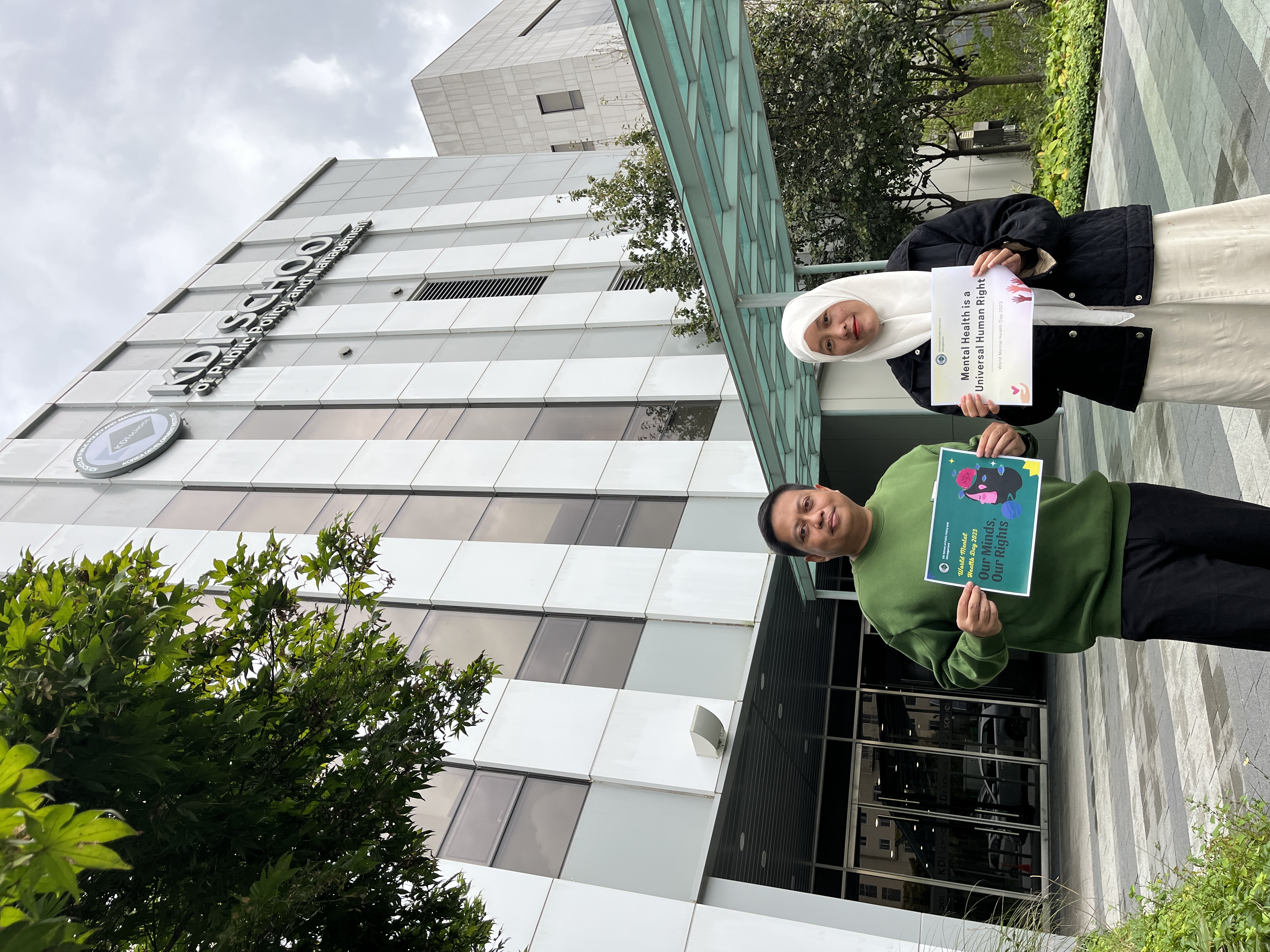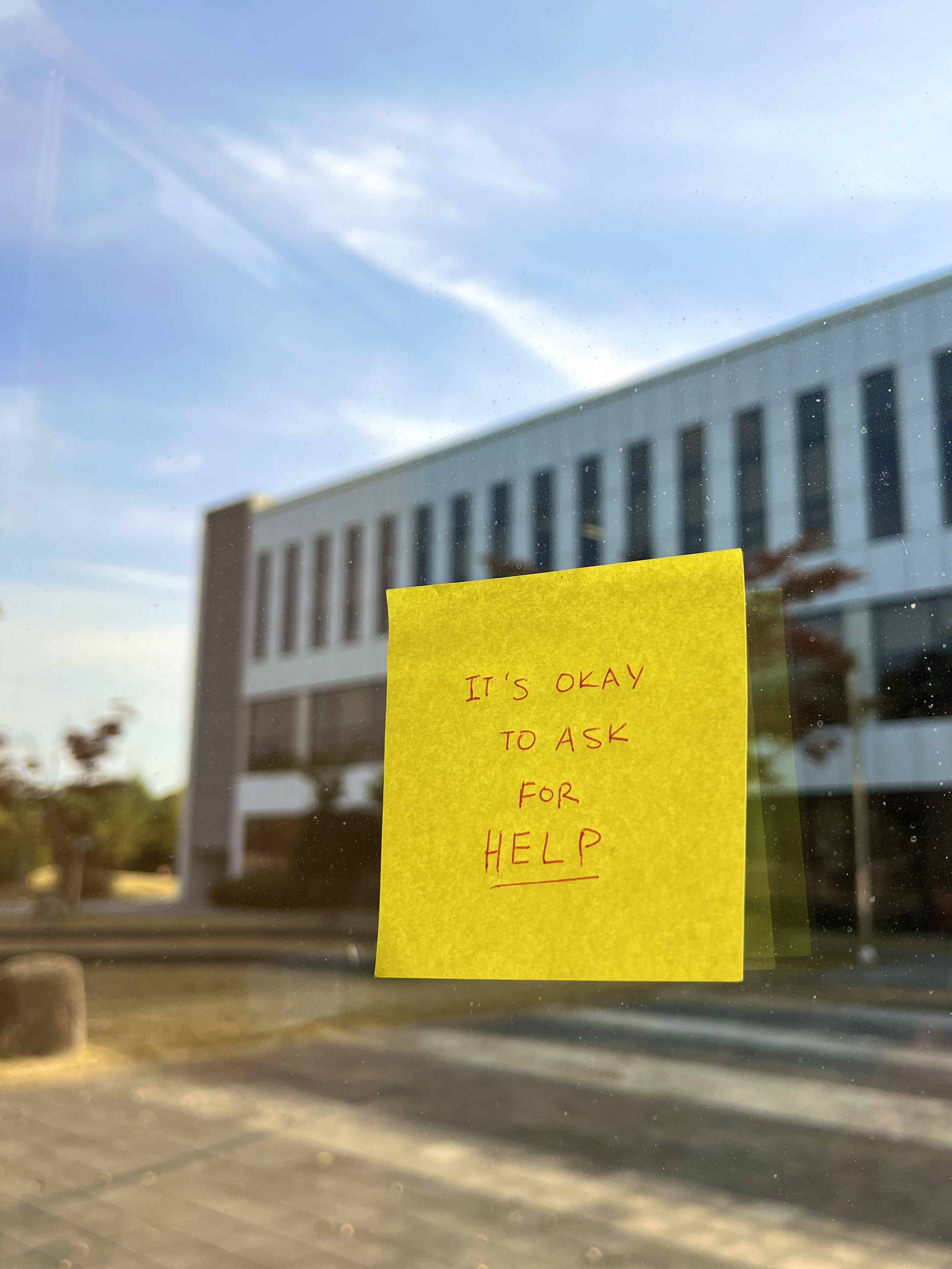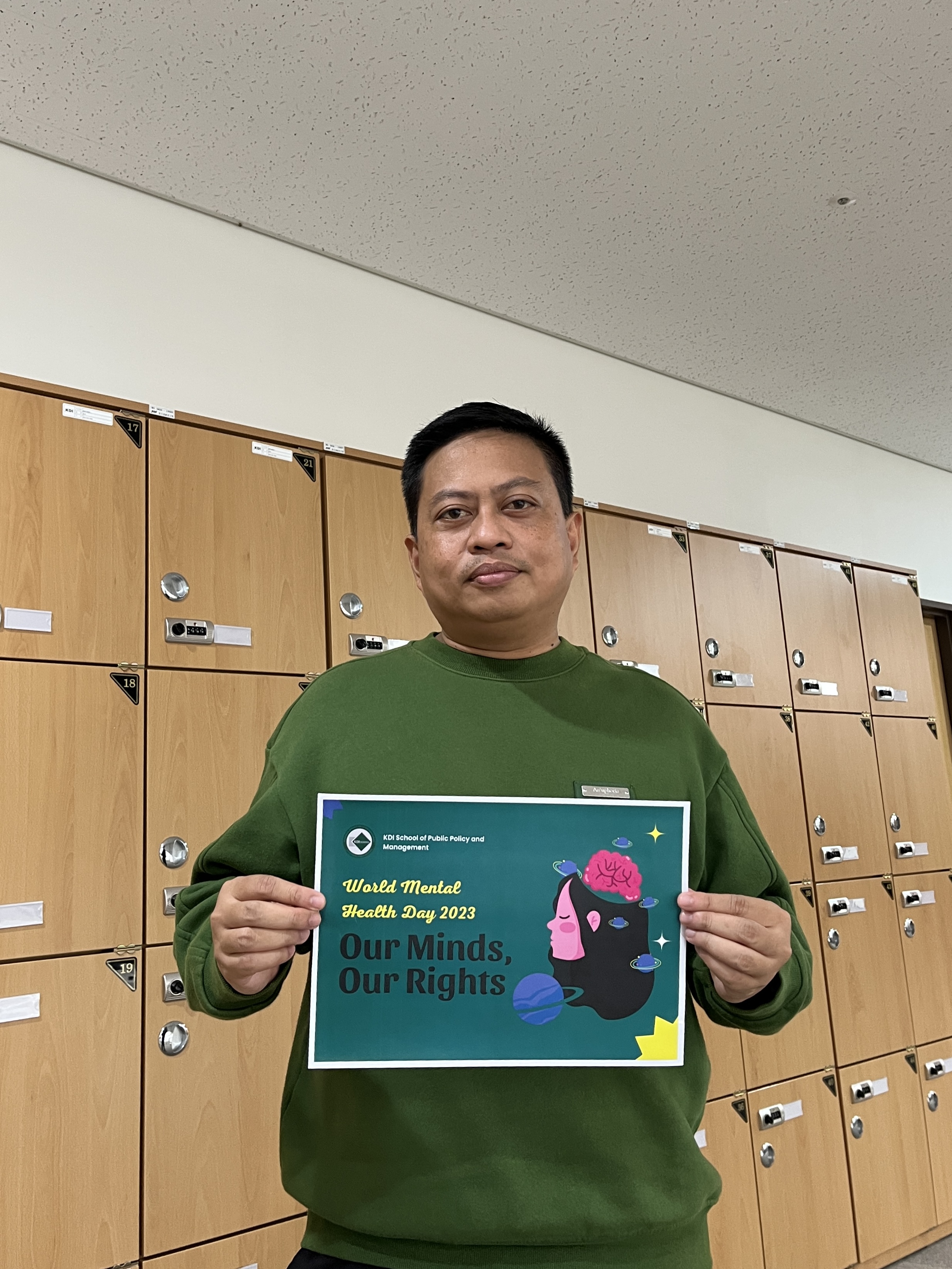
World Mental Health Day 2023 (2)- Making Positive Changes
- Date 2023-10-17 11:00
- CategoryStory
- Hit1091
"What you do makes a difference, and you have to decide what kind of difference you want to make" - Jane Goodall
Changing how we view and address mental health is a crucial step in creating a more compassionate and inclusive society. This year, as we celebrate World Mental Health Day 2023 on October 10th, we discuss the importance of mental health as a universal human right and how it should be accessible to all.
Joining us are Suci Sekarwati, an experienced journalist and mental health advocate from Indonesia, and Richie Silvestre Enecillo, a senior health program officer from the Department of Health in the Philippines. This is the second part of the interview where we talk through some changes we can make as a society. Read the first part of the interview here.
When should one consider taking care of their mental health?

Richie: Addressing mental health involves both proactive and reactive approaches. When it comes to prevention, it hinges on the capacities to tolerate, actively listen, and truly understand. As peers, it's crucial to empathize with different ranges of human emotions and acknowledge that different people undergo different challenges in life. Embracing an empathetic mindset not only nurtures a more compassionate and sensitive generation but also signifies a substantial investment in collective well-being.
Suci: At the same time, while prevention is important, a proper corrective approach to dealing with mental health should also be considered. Adequate resources, facilities, and a robust healthcare system need to be developed to ensure individuals receive comprehensive treatment for their concerns so that they can effectively control their symptoms.
How can one make a change to their own mental health condition?
Richie: Changing a mental health condition starts with recognizing and embracing your emotions. Improvement in mental well-being can only happen if there is acknowledgment and acceptance of your negative sides. Ultimately, it’s all about altering the lens through which you view mental health.
Suci: It’s also important to express how you actually feel. Talking to peers or trusted ones will help alleviate the burden. Having someone to confide in will help you in your journey of improving your mental health.
What is the role of friends, families, peers, or surrounding persons in helping someone dealing with mental health issues?

Richie: These individuals serve as a reliable support network. Engaging in conversations with them diminishes feelings of isolation and helps alleviate stress. Additionally, they offer alternative viewpoints and potential solutions to any challenges you may encounter. They function as a safety net for your emotional and psychological needs, and possessing a healthy support system can significantly impact your ability to navigate through mental challenges.
Suci: Unfortunately, not everyone has a healthy support system. This underscores the importance of realizing that addressing mental health concerns may require more than just confiding in your close circle. While it may be challenging, seeking professional assistance is ultimately the most ideal solution. It is only in a professional setting that you can gain a comprehensive understanding of your body's psychological needs.
As a society, what steps should be taken to transform the current landscape of mental health?
Richie: Transforming the mental health landscape requires a collective effort from all facets of society, rather than relying solely on individual efforts. All institutions are responsible for creating a system that is not only sustainable but also safe and secure for society. The complex challenge of addressing mental health is a multi-sectoral task that everyone should take part in.
Suci: Though this is a complex and lengthy process, it is also a valuable investment for our future generation. Altering the negative mindsets that we have today will yield benefits for our children. But we first have to recognize that change begins within ourselves.
Lastly, “Improving mental health will improve the overall quality of human rights.” What do you think is the connection between the two?

Richie: Mental health and human rights are closely intertwined and interdependent. Prejudices, stereotypes, and stigmas can lead to emotional distress and have a profound impact on an individual's mental well-being. In the realm of human rights, issues like discrimination and restricted access to necessary treatments or assistance further aggravate mental health challenges. This underscores the importance of the right to inclusion, as individuals should not only be entitled to representation and recognition but be valued as human beings.
Suci: This relationship is closely connected and reliant on one another. It is difficult to separate them and address them in isolation. Safeguarding human rights entails advocating for mental health, and vice versa, prioritizing mental health supports the cause of human rights.
KDI School provides counseling services for anyone facing mental health issues or supporting a troubled loved one.
Contact a counselor at:
Phone: 044-550-1840
KakaoTalk: counselingkdis
Email: counseling@kdis.ac.kr
Location: S311 Human Rights Center
2023 Spring / MPM / Malaysia
aida.assilah@gmail.com
Related News
-
Research and Education2 days ago
Republic of Korea Economic Bulletin, May 2024#KDI #Economic #KDISCHOOL #kdischool #Economic Bulletin #Research
-
Story16 days ago
KDIS Health Focus: A Day in the Life of Nurse Kim -
Story19 days ago
Bringing Classroom Lessons to Life: Immersing in Korea's Economic Development Journey on the Spring Semester Field Trip
